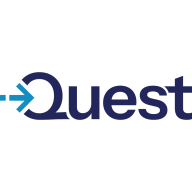

BigID Next and Erwin Data Intelligence are competing products in the data management and governance category. BigID Next stands out for its data privacy and protection focus, while Erwin Data Intelligence might have the upper hand in metadata management and data lineage, catering to organizations with complex data infrastructures.
Features: BigID Next excels in data scanning, discovering, and classifying both structured and unstructured data. Its integration with various data sources supports compliance with data privacy regulations such as GDPR and CCPA. Erwin Data Intelligence provides robust data lineage and mapping capabilities, and it utilizes extensive metadata management to ensure a streamlined data governance process.
Room for Improvement: BigID could enhance its ability to view entire files and improve automation and security features. It would also benefit from better UI navigation and export functionalities. Erwin Data Intelligence can improve its automation and UI for a better user experience, plus better handling of large datasets and metadata management.
Ease of Deployment and Customer Service: BigID offers flexible deployment across private, public, hybrid clouds, and on-premises, with customer service praised for being prompt and supportive. Erwin Data Intelligence offers similar deployment options and is noted for responsive and supportive customer service, although BigID may experience delays with complex issues.
Pricing and ROI: BigID is perceived as expensive, but its modular pricing structure offers cost-effectiveness for large data management needs and delivers high ROI through compliance and efficient data management. Erwin Data Intelligence is competitively priced with additional modules like Smart Data Connectors potentially adding costs. Both solutions enhance data governance and regulatory compliance.
It is one of the best tools in the market.
We have seen returns across all three aspects: fewer employees needed, money saved, and time saved with BigID.
I have seen a return on investment from using BigID, particularly as it is a regulatory and compliance tool that helps avoid potential penalties for non-compliance.
Compared to competitor products like Collibra, erwin Data Intelligence is more cost-effective, providing a data catalog and data lineage views without the high costs associated with governance software.
I would rate the customer support a six because you cannot directly reach out to L3 or L2 support if there's a major issue.
Even when I faced issues within the BigID environment, such as unsuccessful connections or new errors, the BigID team resolved them.
BigID has one of the best technical support teams.
Quest technical support is very good, as they provide not only a technical help desk but also a data automation team that creates and customizes smart connectors, offering a wealth of skilled support.
I have added very large data sources to the BigID environment, and it remains stable.
BigID is scalable, allowing you to purchase as many scanners as you want.
Regarding scalability, I would rate erwin Data Intelligence as an eight or nine for its ability to expand.
BigID is generally stable, however, there is a noted issue with bulk tagging that can affect scan results.
From my perspective, I would rate the stability of erwin Data Intelligence as an eight or nine out of ten.
There is also an issue with incident tagging, where all objects get tagged without an option to untag specific ones, and reverting changes is only possible through MongoDB Central, which can lead to data loss for certain periods.
BigID deserves recognition for the data discovery part, which has been wonderful and quite accurate, along with the confidence level process that allows us to fine-tune results for better accuracy from the database.
I want them to focus on data mapping, assessment, automation workflow, and privacy incident management.
The dashboard in erwin Data Intelligence is customizable, and you can easily create different views.
BigID might be expensive as it involves various paid services, like data retention and graphic rights management.
The pricing is competitive in the market, however, I need to ask for the right price.
BigID simplifies things by integrating both data protection and data privacy in one environment, making it easier for end users.
One of the best features of BigID is its strength in data discovery and governance.
The best features BigID offers are data discovery and DSR, along with the policies they provide, including custom policies that we can create to ensure scans and results are accurate.
This feature is probably the most valuable because it allows for automated reverse engineering of lineage.
| Product | Market Share (%) |
|---|---|
| BigID Next | 5.4% |
| erwin Data Intelligence | 1.9% |
| Other | 92.7% |


| Company Size | Count |
|---|---|
| Small Business | 5 |
| Large Enterprise | 11 |
| Company Size | Count |
|---|---|
| Small Business | 2 |
| Midsize Enterprise | 4 |
| Large Enterprise | 15 |
BigID Next offers advanced data discovery, classification, and governance tools, streamlining compliance with privacy laws while integrating seamlessly with Microsoft platforms.
BigID Next provides comprehensive data management through machine learning-enhanced capabilities, supporting data discovery and classification for both structured and unstructured data. By simplifying processes for GDPR and CCPA compliance, and facilitating data scanning and mapping across databases, it optimizes data management. Automation is central to its design, with solutions for DSAR requests, organizing data with security labels, and ensuring a holistic organizational data view. Improvements in navigation, bug fixes, and scan reliability remain essential, along with enhancing classifiers for broader region coverage.
What features does BigID Next offer?BigID Next is commonly implemented in industries needing robust data governance, such as finance and healthcare, where data privacy and compliance with regulations are critical. It aids in scanning and classifying extensive data volumes, helping businesses maintain regulatory compliance while managing data risks effectively.
Erwin Data Intelligence drives automation, supports data catalog and literacy, and offers Smart Data Connectors for efficient metadata handling. Its customization flexibility and integration facilitate enhanced data governance, visualization, analysis, and compliance.
Erwin Data Intelligence offers automation scripts that accelerate development, integrated data cataloging, data profiling, and lineage analysis to streamline information management. Users appreciate its capability in metadata harvesting, code engineering, and infrastructure integration. The tool provides flexibility to enhance governance and data visualization. While it performs well, users have noted challenges with API robustness and interface complexity, and there are opportunities to improve workflow integration, AI features, and large dataset handling. Companies rely on it for metadata management, automation of metadata mappings, and data governance to support compliance and literacy.
What are the main features of Erwin Data Intelligence?In industries such as finance, healthcare, and retail, organizations implement Erwin Data Intelligence for efficient metadata management and governance. It assists in automating lineage and mapping, supporting ETL procedures while enhancing compliance and data literacy efforts. Its flexibility and integration support create valuable data insights and governance improvements.
We monitor all Data Governance reviews to prevent fraudulent reviews and keep review quality high. We do not post reviews by company employees or direct competitors. We validate each review for authenticity via cross-reference with LinkedIn, and personal follow-up with the reviewer when necessary.